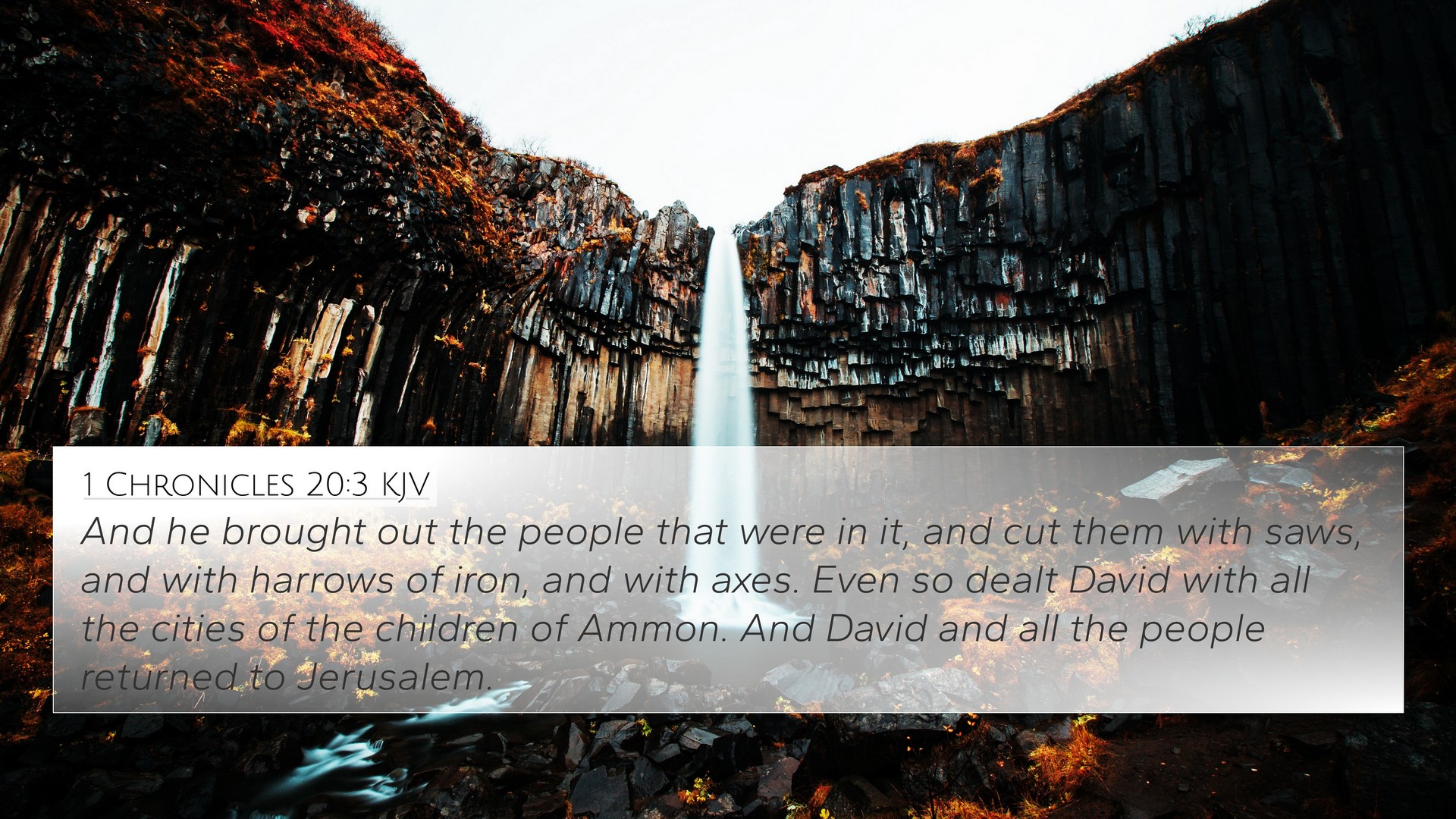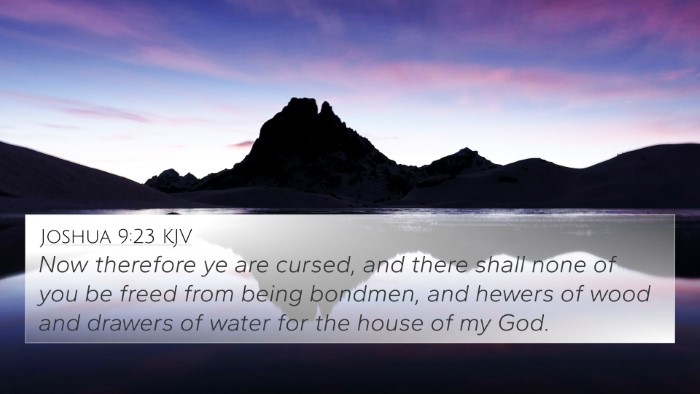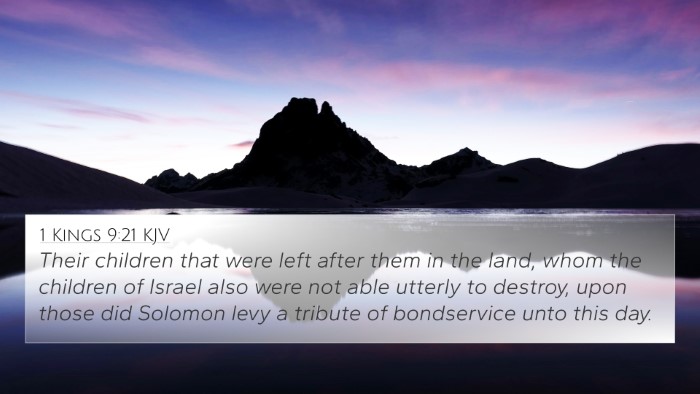Understanding 1 Chronicles 20:3
Verse Reference: 1 Chronicles 20:3
The verse reads: "And he brought out the people that were in it, and cut them with saws, and with harrows of iron, and with axes. Even so dealt David with all the cities of the children of Ammon."
Summary of Meaning
This verse illustrates King David's military actions against the Ammonites. Following the siege of their capital, the city of Rabbah, David employed brutal methods to subjugate the defeated enemy. By doing so, it underscores the seriousness of divine retribution against nations opposing God's people.
Commentary Insights
-
Matthew Henry:
Henry highlights the divine justice in David's actions, viewing them as a consequence of the Ammonites' earlier transgressions against Israel. The brutality exemplified is seen as a direct command from God to exact judgment.
-
Albert Barnes:
Barnes finds that the verse illustrates the severity of war during ancient times, pointing out the sociopolitical context where the victor often acted in ruthless ways to secure peace and dominance. He emphasizes the overarching theme of God's sovereignty in ensuring that justice is served.
-
Adam Clarke:
Clarke elaborates on the methods employed by David, suggesting they were common in warfare during that era, intending not only to punish but also to send a message to others. He also notes the significance of David's leadership in the context of Israel’s divine calling.
Connections to Other Biblical Texts
This passage can effectively be cross-referenced with several other verses throughout the Bible, enriching the understanding of God's judgment and the consequences faced by those who oppose His people:
- 2 Samuel 12:31: This verse parallels the account of David's warfare and emphasizes the consequences of rebellion against God.
- Psalm 137:8-9: Reflects on the sentiments of Divine justice and retribution on enemies, resonating with David's actions.
- Deuteronomy 20:10-14: Establishes guidelines for warfare, highlighting God’s commands regarding the treatment of conquered nations.
- Jeremiah 49:1-2: Prophetic words against the Ammonites, reinforcing the theme from 1 Chronicles 20 about God's judgment against those who oppose His people.
- Isaiah 11:4: The concept of righteousness in judgment parallels David's motives for battle against his enemies.
- Ezekiel 25:1-7: This passage speaks to the judgment against the Ammonites, relating directly to David's actions outlined in our key verse.
- Romans 13:4: Sheds light on God's ordination of authorities, as King David acted on God's behalf in judgment against the Ammonites.
Thematic Connections
The verse is significant in exploring themes such as:
- Divine Justice: The actions taken by David were seen as fulfilling God's purpose and enacting justice against sin.
- Leadership in Warfare: King David is seen as a model of a God-ordained leader that represents divine authority in a militaristic context.
- Moral Implications of War: The brutal methods raise questions about the morality of warfare and the ethics of leadership during conflict.
- Historical Context: Understanding the socio-political landscape of ancient Israel lends deeper insight into the motivations for such actions.
Tools for Cross-Referencing
For those looking to delve deeper into Biblical cross-referencing, the following tools may be useful:
- Bible Concordance
- Bible Cross-Reference Guide
- Cross-Reference Bible Study
- How to Use Bible Cross-References
Conclusion
1 Chronicles 20:3 is a vivid reminder of the complexities of divine justice, leadership, and the severe realities of warfare in Biblical times. By cross-referencing this passage with various scriptures, believers can uncover the interconnectedness of God's plan throughout the Bible and gain a deeper understanding of His character in the context of human history.
Call to Action
For a more comprehensive Bible study, consider utilizing Bible cross-reference systems and exploring Bible reference resources available to uncover the profound connections embedded within Scripture. Engaging in cross-referencing Bible study methods will not only illuminate meanings but also foster a richer dialogue with God's Word.










